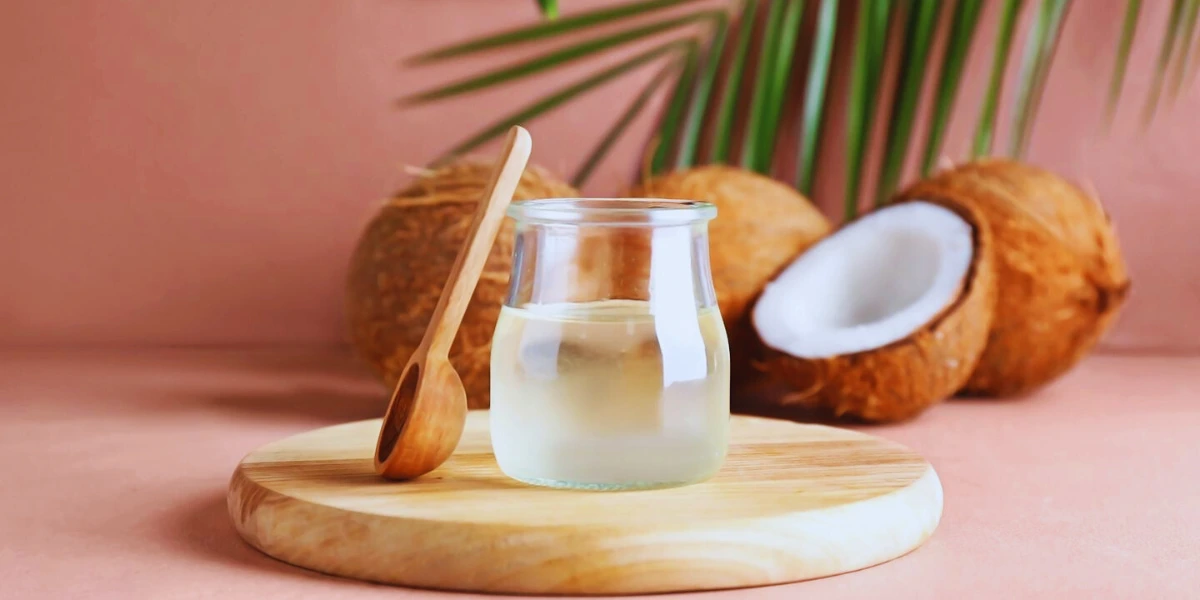Most people are going crazy toward fitness, and they are trying the keto diet, taking herbal supplements, and now they have shifted to coconut oil.
However, the researchers have some different views regarding this as their experiment and findings are opposite of the trend the people are applying for weight loss.
Undoubtedly, coconut oil is good for health and skin, and that’s the reason most people use it in their daily lives.
However, its usage regarding weight loss is a debated topic, as some believe it gives positive results, but scientists based on experiments do not believe that coconut oil can reduce weight.
So, in this article, you will come to know whether coconut oil helps in weight reduction or not.
Why Are People Connecting Coconut Oil As A Weight-Reducing Agent?
Coconut oil is a natural product that contains some essential elements that play a key role in weight reduction when used independently, such as medium-chain triglycerides fat, commonly known as MCT.
This fat contains capric and caprylic acids, which help in weight reduction, but their effect is somewhat diluted due to the presence of other fats in coconut oil, and that’s the reason coconut oil can’t help in weight loss.
However, if you use MCT oil independently, then you will get a positive result in reducing weight, as this fat acts as an immediate energy supplier.

Earlier, we know that glucose gives us instant energy but has negative effects too. But MCT infuses in the bloodstream rapidly, and when it reaches the liver, it generates ketones and energy.
In addition, ketone is also an important element in providing energy.
Now, you may wonder about the role of MCT in weight loss; you may be familiar that weight increases because of overeating, and MCT prevents you from overeating and keeps you full.
In addition, it has the ability to burn fat due to the thermogenic effect.
So, the presence of MCT in coconut oil made people believe that coconut oil can be helpful in weight loss. But that’s not true because coconut oil contains some parts of MCT, and the rest are saturated fats. So, the effect of MCT gets diluted when used in coconut oil, but if you use MCT oil, then you will see an improvement in weight loss.
Does Coconut Oil Have Any Role In Weight Loss Or Not?
Now, you are very clear about the role of MCT in coconut oil, but the question still exists whether coconut oil helps in weight loss or not.
Using standalone MCT oil will give you a good result, but coconut oil that contains saturated fats can keep your stomach full and decrease hunger, and as a result, you won’t overeat, and thus your weight will reduce.
However, some experiments proved that coconut oil can keep you full for 4 hours, and the same case applies to corn oil or olive oil, which means coconut oil is not so effective in keeping you away from food.
In the case of weight loss, there are some proven theories that coconut oil helps reduce belly fat but does not have any effect on weight loss.
In the experiment, 30 ml coconut oil was provided to 20 male adults for a month, and the outcome was amazing, as their belly fat was partially reduced.
However, coconut oil contains saturated fats that can raise cholesterol levels, which can be harmful to body organs, especially the heart.
But, this theory is partially true; undoubtedly, coconut oil has fats, and its usage can increase cholesterol levels, but it is of High-Density Lipoprotein, which is good as per doctors.
The bad cholesterol is Low-Density Lipoprotein, and coconut oil does not alter this level, which means it will give you good cholesterol, which will keep your body healthy.
What Is The Best Way To Consume Coconut Oil For Good Health?
Now, as per the scientific research and findings, it has been proved that coconut oil does not have any effect on weight gain or loss, but it reduces belly fat.
However, it has several properties that can positively affect your body, such as HDL level, which is good for your heart.
You can consume coconut oil in various ways, and the easiest one is the direct consumption of one tablespoon of coconut oil daily.

This act will boost your immune system and also increase the HDL cholesterol levels.
In addition, you can use coconut oil in cooking, but only in giving a small touch; don’t use this oil for deep frying as it has low-smoke properties, and at high temperatures, it will release carcinogens, a harmful chemical agent.
Additionally, you can use coconut oil in your beverages, such as herbal tea, green tea, and others. You just need to prepare your beverage and then add one tablespoon of coconut oil to the prepared tea.
In addition, if you love baked products, then you can use coconut oil in baking cakes, cookies, and others. As stated earlier, coconut oil contains saturated fats, which help in releasing the Lepin hormone and keep you full.
So, in this case, you won’t eat more and thus will maintain your health.
Conclusion
Coconut oil consists of Vitamin E and antioxidants, which are good for our body, but the consumption of the same must be monitored, and it should be taken 30 ml daily.
In addition, there are several byproducts of coconut oil, such as Virgin coconut oil, which is free from saturated fats and will give you better results in controlling your weight.
Moreover, if you want to add coconut oil for cooking, then you can go with refined coconut oil because it has a high smoke point that won’t release harmful chemicals.
However, when you add coconut oil to your diet, then make sure to avoid partially hydrogenated coconut oil because it creates trans fat, which is not good for your health and may increase your bad cholesterol.
So, the right selection of coconut oil is essential to get a positive result in your body.
References:
- Coconut oil. (2019).
https://fdc.nal.usda.gov/fdc-app.html#/food-details/343868/nutrients - Wallace TC. Health Effects of Coconut Oil Narrative Review of Current Evidence. J Am Coll Nutr 2019;38(2):97–107. –
https://pubmed.ncbi.nlm.nih.gov/30395784/